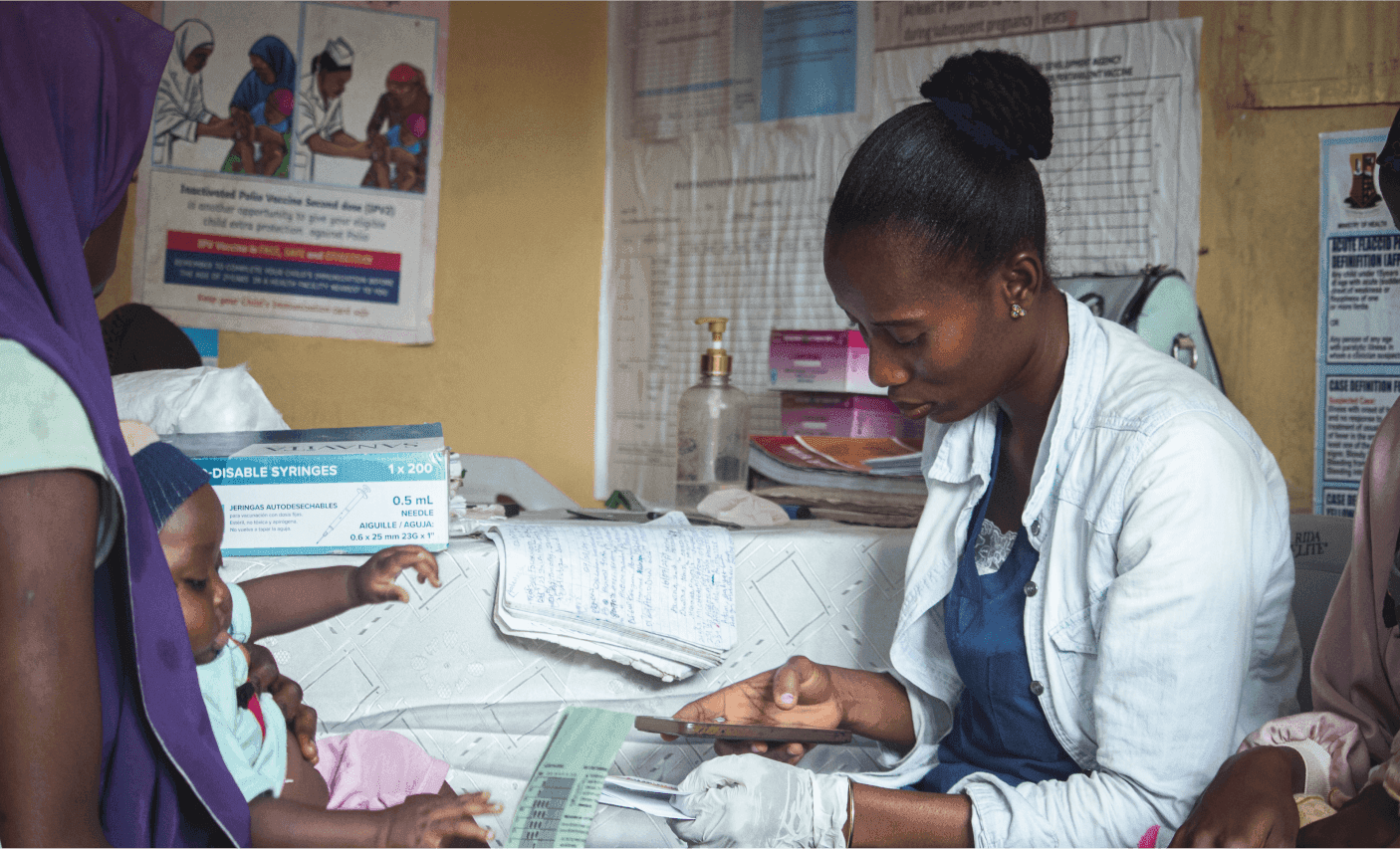
Primary Healthcare, Community, and Food Systems
Our team is providing technical assistance to EPI programs at national and sub-national levels, we are currently providing assistance to the EPI programmes in the design, microplanning, implementation, monitoring, and evaluation of SIAs, leading mixed-method evaluations to identify key gaps in immunisation programmes and health systems, engaging closely with EPI programs and partners.
We are certified members of the Nigeria Immunisation Technical Advisory Group (NGI-TAG), and we provide support for this institutional scientific advisory mechanism that underpins the immunisation programme in Nigeria and globally. We are also a member of Gavi's 'Approved Suppliers Lists of Recommended Local Partners for Technical Assistance' for GAVI 5.0 Strategy and Technical Assistance for COVID-19 Vaccine Delivery, having been prequalified for several workstreams.
We provide technical leadership for national nutrition programs in Nigeria, including the Niger Delta Infant and Young Child Feeding project, micronutrient supplementation, and severe acute malnutrition management. Our expertise includes high-impact interventions such as vitamin A supplementation, deworming, growth monitoring, anthropometric assessment, and complementary feeding for infants in their first 1000 days.
We are currently implementing a Cluster Randomised Controlled Trial (CRT) in Cameroon, Democratic Republic of Congo (DRC), Lesotho, and Nigeria to address immunisation challenges through demand-side incentives. The four-arm CRT tests the impact of cash and non-cash incentives in reducing the number of zero-dose children in the intervention locations. The study will run until December 2025. At the heart of this intervention is the design and deployment of a community-based campaign management system in each of these countries and this is in collaboration with the Gavi Finance Team.
Our team is working with the Sabin Vaccine Institute to study the structural determinants of zero-dose children in Northern Nigeria's urban slums. This mixed-method study includes observational (household surveys, ethnography, interviews, focus groups) and interventional components, using design thinking to enhance microplanning and address poor urban planning in immunisation.
We are also collaborating with the Sabin Vaccine Institute to conduct social listening in Nigeria, targeting young people and adolescents. Using media scanning and online polling, we identify misinformation and other factors contributing to zero-dose rates. Our focus is on social media platforms like Facebook, Twitter, Instagram, and digital news sources.
We currently working in Democratic Republic of Congo with the Sabin Vaccine Institute to conduct a study employing a time-location sampling method (TLS) as well as a mixed method and participatory design to sample groups of caregivers to understand the barriers and facilitators in two provinces of the Democratic Republic of Congo: North Kivu and South Kivu with large population of migrant communities.
We are currently providing technical assistance to the introduction of the HPV vaccine in Nigeria, working with the Ministry of Health and community partners. Our efforts include tracking vaccine coverage, identifying areas needing support, and engaging healthcare professionals, educators, and community leaders to raise awareness, integrate the vaccine into routine immunisation, and ensure its long-term success.
In Lesotho, we are providing technical assistance to the MOH by providing incentives to boost HPV vaccine uptake. This includes developing and implementing promotion plans, conducting mini-assessments to monitor vaccination rates, and supervising district-level demand-generation activities. Our efforts aim to enhance vaccine coverage and address barriers to vaccination.

Subscribe To Our Newsletters
Stay Updated with the Latest News and Events - Directly in Your Inbox!